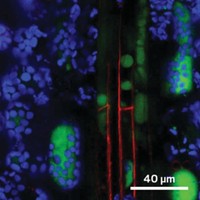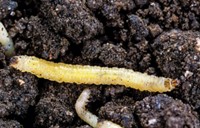Advertisement
Grab your lab coat. Let's get started
Welcome!
Welcome!
Create an account below to get 6 C&EN articles per month, receive newsletters and more - all free.
It seems this is your first time logging in online. Please enter the following information to continue.
As an ACS member you automatically get access to this site. All we need is few more details to create your reading experience.
Not you? Sign in with a different account.
Not you? Sign in with a different account.
ERROR 1
ERROR 1
ERROR 2
ERROR 2
ERROR 2
ERROR 2
ERROR 2
Password and Confirm password must match.
If you have an ACS member number, please enter it here so we can link this account to your membership. (optional)
ERROR 2
ACS values your privacy. By submitting your information, you are gaining access to C&EN and subscribing to our weekly newsletter. We use the information you provide to make your reading experience better, and we will never sell your data to third party members.
Environment
RNA Interference Targets Pests
November 12, 2007
| A version of this story appeared in
Volume 85, Issue 46
The gene-silencing technique known as RNA interference (RNAi) is a potential new weapon for insect control, according to two reports. Plants can be genetically modified to produce double-stranded RNA (dsRNA) with sequences complementary to target genes in insects. When insects eat the dsRNA, it triggers the RNAi process in the insects. In one study, scientists at Monsanto, Chesterfield, Mo., and at Devgen, Ghent-Zwijnaarde, Belgium, created transgenic corn that produces dsRNA that targets genes in the western corn rootworm (Nat. Biotechnol., DOI: 10.1038/nbt1359). In the other study, scientists at the Chinese Academy of Sciences, Shanghai, used RNAi to silence a gene for a cotton bollworm enzyme that helps the pest tolerate the polyphenol gossypol, a toxic metabolite produced by cotton (Nat. Biotechnol., DOI: 10.1038/nbt1352). In both studies, RNAi stunted larval growth, a result suggesting it might be useful for controlling pests.





Join the conversation
Contact the reporter
Submit a Letter to the Editor for publication
Engage with us on Twitter